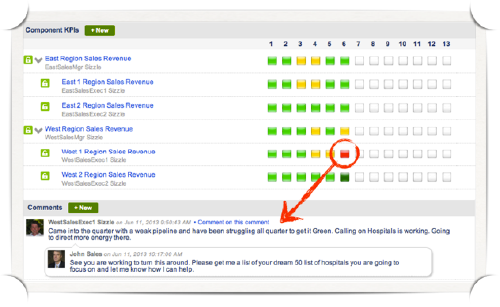The foundation of a successful Daily Huddle or Weekly Meeting is a great facilitator. Below are some characteristics and best practices of some of our most successful executive teams:
Be dedicated. A good facilitator is dedicated to the regular meeting rhythm. Weekly Meetings and Daily Huddles should happen on their designated days/times without fail. If a person is not able to attend, they should still prepare by doing their Weekly Meeting Prep and sending their Victories, Priorites and Stucks to the Daily Huddle facilitator. A good facilitator holds the team accountable to being prepared.
Focus on the How, not the Why. Efficient Weekly Meetings produce solutions-based discussions instead of status-based presentations. The facilitator should not ask why Red and Yellow are struggling. Instead, they should guide the discussion by asking the team how to move struggling priorities toward Green.
Steer Clear of Tangents. The best facilitators do a great job of reeling discussion in and keeping the team focused. If the discussion takes a left turn, bring everyone back to center. If a discussion only involves 2 people, ask them to take it offline. The goal is to keep everyone engaged.
Drive a Culture of Accountability. Executive teams that list at least 2-3 Action Items for each Personal Priority are infinitely more successful with execution. Every week, the facilitator should review the All Actions List with the team as part of the Weekly Meeting Agenda. As Action Items come up during the Weekly Meeting or Daily Huddle, the facilitator should record those so they don’t slip through the cracks.
Share Facilitator Duties. Some of the most advanced teams rotate facilitator duties throughout the executive team. At the beginning of the quarter, the weeks are assigned. If someone isn’t able to cover their week, they have to find someone to switch. This takes the responsibility off of one person, and gives everyone the experience of facilitating. It also improves Weekly Meeting Prep and participation because everyone gets a taste of how it feels when you are the facilitator and someone doesn’t contribute.
Repost by Tiffany Chepul, Gazelles Systems

